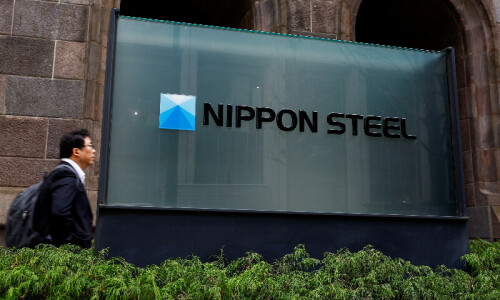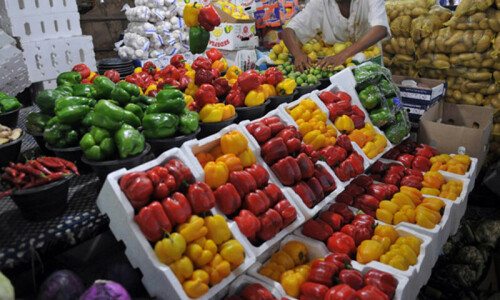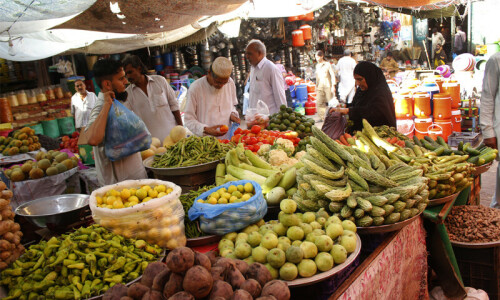BRUSSELS: As the Beijing Olympic Games highlight China’s emergence as a world power, the European Union is struggling to take a coherent approach to the Asian giant.
Depending on whom you talk to in Brussels, China is a trade headache, an economic opportunity, a serial human rights violator, a resource-guzzling menace to the planet, a strategic partner or a geopolitical threat. Or all of the above.
Typically for the EU, no one is in charge of relations with the world’s most populous nation and fourth biggest economy.
“The EU views China still largely through the trade prism,” said an EU official involved in foreign policy. “We call them a strategic partner, but we mostly talk to them about goods and the exchange rate of the renminbi (currency).”
When the 27-nation bloc’s trade deficit with Beijing hit a record $247.4 billion last year, southern member states that make textiles, footwear and furniture pleaded with Brussels for protection against cheap imports.
How to respond to the rise of the Asian export powerhouse has pitted pro-free trade countries such as the Nordic states and Britain against those such as Italy and France who say China breaks trade rules in ways that cost European jobs.
EU Trade Commissioner Peter Mandelson has done his best to resist protectionist pressure, arguing that China’s export boom has not reduced European prosperity far from it.
Mandelson, the unofficial relationship manager with Beijing and a frequent visitor to China, is a vocal member of the “economic opportunity” school of thought.
“What should worry us is not the success of the developing world, but its potential failure,” Mandelson said in a speech in New York in June. “A stalling or a crash of growth in China would be a disaster, not just for China but for us too.”
Other EU officials look at China mainly through the lens of their own portfolios or concerns.
Environment Commissioner Stavros Dimas’s favourite statistic is that China is building one coal-fired power station a week.
Its carbon dioxide emissions have surged to more than 24 per cent of the global total from seven per cent in 2002.
Development Commissioner Louis Michel sees China firstly as a challenge to the EU in Africa, pursuing cheque-book resource diplomacy in the backyard of former European colonial powers with little regard for standards of governance and human rights.
However, some African leaders say China is a less intrusive partner than the EU and delivers what it promises.
Beijing has irked EU officials by blocking UN sanctions against Sudan over the conflict in Darfur and against Zimbabwe over alleged election rigging and intimidation.
For the European parliament, it is China’s own rights record that often seems to be the main issue. In April it condemned Beijing’s “brutal repression” of Tibetan protests and urged EU leaders to consider boycotting the Olympics opening ceremony.
Parliament President Hans-Gerd Poettering announced he would stay away on human rights grounds, a gesture that contrasted with his decision to visit Syria the day after the ceremony.
French President Nicolas Sarkozy, current holder of the EU presidency, came under fire in the European Parliament last month for his decision to go to the Olympics. He retorted: “I don’t think you can boycott a quarter of humanity.”
Efforts to build a strategic relationship with China hit a roadblock in 2005 when the EU, bowing to US pressure, dropped plans to lift an arms embargo imposed after the 1989 crackdown on pro-democracy activists in Tiananmen Square.
Andrew Small of the German Marshall Fund think-tank said this sent China the message that the EU would always defer to Washington in the end. The EU’s failure to win popular support for its own draft constitution added to Beijing’s doubts about how seriously to take Brussels.
Expert recipes for a strategic EU-China relationship abound.
Etienne Reuter, a former EU ambassador and adviser on Asia policy, says the EU should use its “soft power” to broaden the relationship with China, expanding cooperation into development, health, education, science and climate change.
Charles Grant and Katinka Barysch of London’s Centre for European Reform say the EU and China should help shape a new multipolar world order by focusing on the key priorities of climate change, nuclear non-proliferation and Africa.
But with no current means to reconcile conflicting EU priorities, such a strategically defined policy seems unlikely any time soon.—Reuters














































Dear visitor, the comments section is undergoing an overhaul and will return soon.